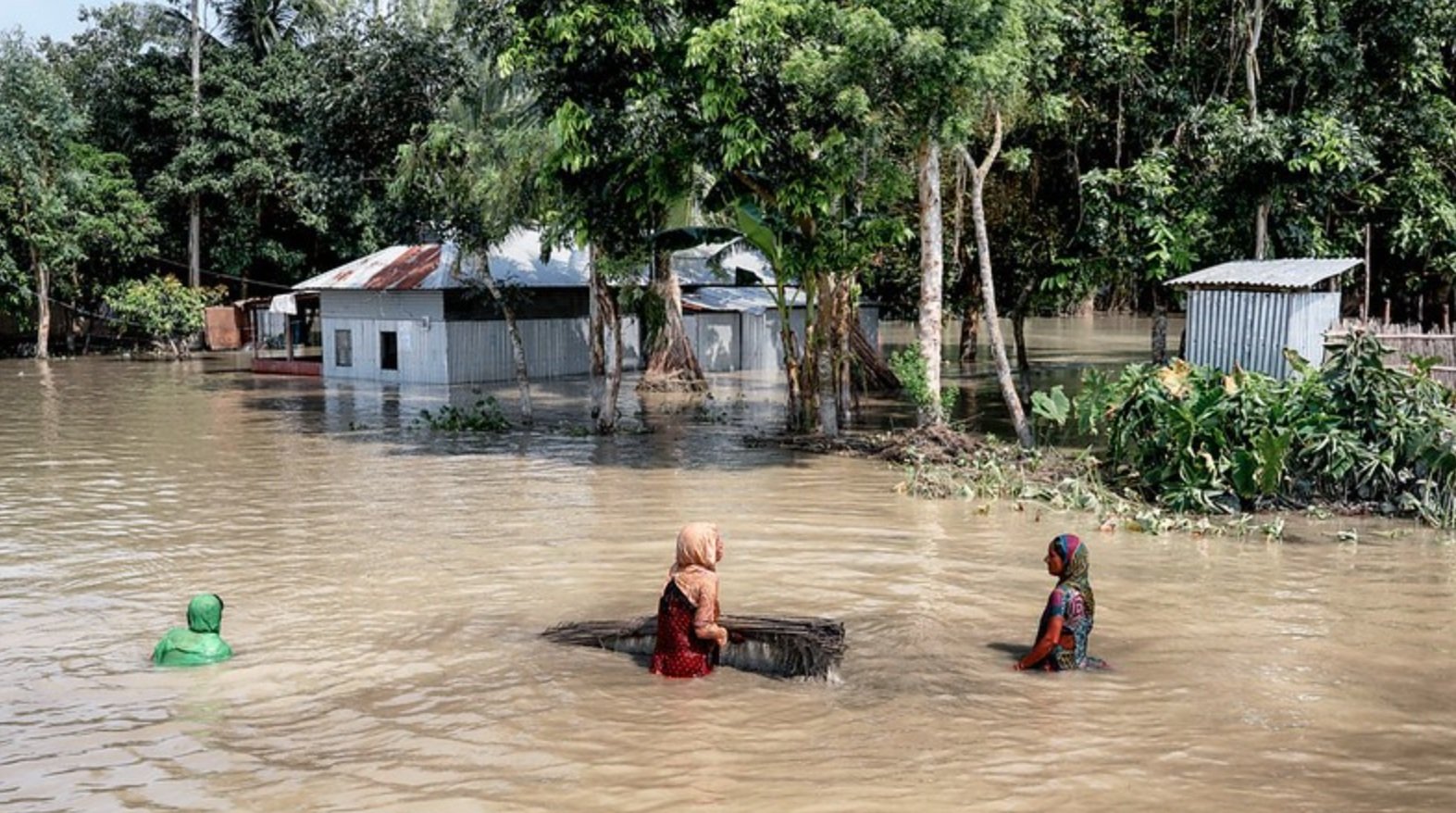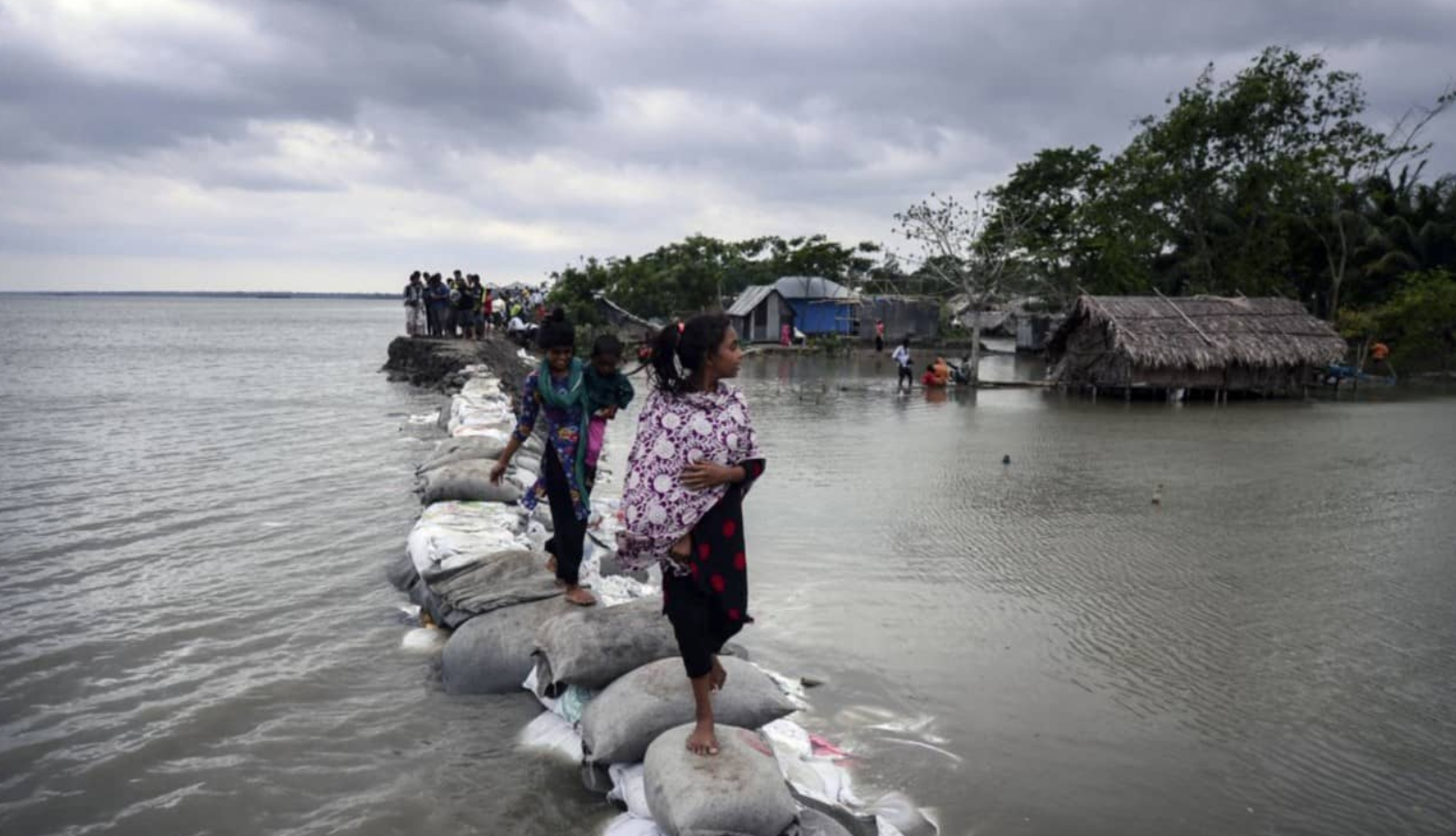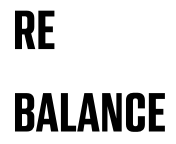
Calling Global Leaders to take action to save Bangladesh from the devastating grip of climate change
Image by Mohammad Rakibul Hasan
By 2050, with a projected 50 cm rise in sea level, Bangladesh may lose approximately 11% of its land, affecting 13 million people, and potentially displacing over a million.

Image by AFP
The Re-Balance Approach.
Recognise.
We recognise that our planet is hurting and the damage caused by the industrial revolution through the use of fossil fuels is almost beyond repair. We know from our research that governments, businesses and communities must collaboratively cut their carbon emissions and look at ways to restore our universal home; planet earth. This is vital to ensure their is a habitable planet for our future generations to thrive.
However, what does this mean for emerging countries such as Bangladesh who are already feeling the devastating impacts of climate change?
Review.
This year marks the 50th year of independence for Bangladesh. The British Bangladeshi community are reflecting on the achievements of their incredibly resilient country and what the next 50 years could look like.
It is also an important year for climate change with Glasgow, UK hosting COP26, bringing 120 global leaders together to combat the already devastating effects of climate change.
Bangladesh is one of the countries most effected. Already feeling the threat from rising sea levels causing life threatening issues around salinisation and pollution, riverbank erosion, vector bourne diseases and loss of bio-diversity. Women and young children are most at risk at being displaced and having to flee homes as climate refugees to the likes of Rohingya refugee camp.
Respond.
As a founding member, Re-Balance and Freedom50 collaborated to highlight the alarming climate emergency Bangladesh is facing. A letter was co-written to be delivered at COP26 outlining 7 demands to protect Bangladesh from being environmentally and culturally wiped out due to the extreme weather changes caused by climate change.
The letter was co-signed by 50 members of the British Bangladeshi diaspora community showing their support.
Read the full letter below.
Letter to Global Leaders at COP26
Dear Sheikh Hasina-Wazed, Honourable Prime Minister of the People’s Republic of Bangladesh & All Parties to the United Nations Framework Convention on Climate Change,
On the occasion of the 26th United Nations Climate Change Conference of the Parties (COP26) in Glasgow on 31 October to 12 November 2021. We, the undersigned are demanding action to tackle climate change and its effects on Bangladesh.
In his landmark speech on 7 March 1971, Bangabandhu Sheikh Mujibur Rahman called upon Bengali people around the world to unite and fight for the freedom of Bangladesh. The community in the UK responded to that call to action. In 2021, as we mark the 50th anniversary of independence, the British Bangladeshi community calls upon the Prime Minister of Bangladesh, Sheikh Hasina Wazed, to unite the global Bangladeshi community and countries all around the world to work together to protect Bangladesh from the catastrophic impacts of climate change. We recognise the sacrifices made to create Bangladesh. The challenge for this generation is to protect our ancestral lands for its centenary and beyond.
Extreme weather conditions such as flooding, storm surges, cyclones, droughts, sea levels rising, and saltwater intrusion are all directly linked to climate change and forcing families deeper into poverty and displacement. In the process, children’s access to education and health services are severely disrupted, threatening the lives and futures of more than 19 million children in Bangladesh.
Around 12 million of the children most affected live in and around the powerful river systems which flow through Bangladesh and regularly burst their banks. Another 4.5 million children live in coastal areas which are regularly struck by powerful cyclones, while a further 3 million children live further inland, where farming communities suffer increasing periods of drought.
With over 165 million people, Bangladesh is one of the most densely populated countries in the world, and one of the most vulnerable to climate change and natural hazards. Bangladesh has made remarkable economic progress since independence, taking 25% of its population out of poverty in the last 20 years. However, frequent natural disasters and vulnerability to climate change are key challenges facing Bangladesh as it transitions to become an upper-middle-income country.
The Bangladeshi community in the UK is one of the largest Bengali diasporas in the world and contributes significant skills and financial resources both to Bangladesh and to the UK. This year is significant for the British Bangladeshi community as it celebrates fifty years of friendship between the UK and Bangladesh and the UK hosts COP26.
We, the undersigned demand action. Climate change is happening here and now, with very real impacts for millions of people who have done the least to contribute to it. Bangladesh’s low elevation, high population density and millions who are heavily reliant on farming, mean it is exceptionally vulnerable to climate change. Climate change poses a clear danger to the environmental integrity of Bangladesh and the security, economic and social well-being of those who live there. In the last 20 years, Bangladesh has been one of the ten most affected countries and the impact is intense, damaging, and on the increase.
Children, women, and the poor are the most affected with an estimated 4.1 million new displacements in 2019, placing Bangladesh among the top countries globally with the most disaster-related internal displacement. Bangladesh has implemented climate change strategies and national adaptation plans such as Delta Plan 2100 alongside two Climate Change Trust Funds, and has shown global leadership for climate action as Chair of the Climate Vulnerable Forum, the international forum of countries most vulnerable to climate change. Communitywide training and improved forecasting have significantly cut death tolls from cyclones.
This year, it adopted a rights-based National Strategy on ‘Internal Displacement Management’, particularly to address climate and disaster induced displacement, and is considered a champion in natural disaster preparedness. However, it must do more to address the unplanned use of natural resources, unregulated industrialisation and urbanisation, and to combat both social disparity and gendered inequality, and it cannot do it alone.
The Parties to the Conference have a duty to act now, and safeguard the environment for the future of humankind, and all living creatures on this earth.
Now is the time to act.
WE, THE UNDERSIGNED, DEMAND:
1. Stay below 1.5 degrees - All countries must rapidly and fully implement the global climate change agreement established in Paris in December 2015, raise their emission reduction pledges, and keep the global temperature level below 1.5°C above preindustrial levels.
2. Greater support & collaboration must be available for adaptation and assistance to countries most susceptible to climate change, including Bangladesh. Countries need to work together and share innovation, technology transfer, expertise, and localised capacity building. In recognition of Bangladesh’s National Strategy on Displacement, countries should adopt similar models and approaches towards tackling local climate change challenges.
3. Government action - Governments must ensure that the development of legal protections and actions recognise that people are having to leave their homes due to climate related factors. A new international, binding agreement giving humanitarian protection and assistance to those who move in the context of climate change including humanitarian and work visas will ensure that such people will have alternative livelihood options if staying at home is not an option due to environmental impacts.
4. Provide more resources - The international community should acknowledge the innovative funding mechanisms created by countries such as Bangladesh and collectively provide resources towards supporting the needs of countries that are most vulnerable to climate change and least able to adapt to its effects.
5. Protect Natural Resources - Bangladesh has to take immediate steps to protect its natural resources and its biodiversity. Urbanisation has to be sustainable and regulated, wetlands must be protected, and the damaging effects of salinisation have to be halted. Steps need to be taken to minimise water pollution.
6. Adapt now - Bangladesh adapts to the effects of climate change that are afflicting it right now, in the form of infrastructure development and livelihood adaptations. Modifying and strengthening housing, raising schools and roads, ensuring multipurpose use of infrastructures, constructing seawalls and planting mangroves or other vegetation along coastlines, are practical examples of actions, in addition to mitigating the effects of riverbank erosion.
7. Building resilience in Bangladesh to disasters and climate change has to be community-led, women-led and refugee-centred to empower those most affected by crises and ensure that they benefit equally from all development interventions of the country. Migration, both within Bangladesh and internationally, has always been a coping mechanism and must be recognised as an adaptation strategy. Cities throughout Bangladesh need to be better equipped to plan for those who have moved in the context of climate change, including access to health, education and social protection. Adapting to this crisis requires consultation and understanding of how complex and vulnerable the landscape is in Bangladesh. Policymakers need to consider local social dynamics when providing early warnings, food, and other social services.
As Bangladesh seeks ways to adapt to climate change, it could set a great example of inclusive planning for other nations to follow. We are in a climate emergency; the crisis is here, and we cannot afford any more delays.
The survival of Bangladesh over the next 50 years depends on bold leadership and action right now on zero emissions, biodiversity, and a human rights protection framework to protect those affected by climate change.
We want climate justice now. COP26 is the most important conference for future generations now, and as we mark Bangladesh’s 50th year of existence this is the opportunity to give Bangladesh another 50 years and much more.
- -
SIGNATORIES
The founding members of Freedom50, a collective of individuals and organisations who have come together to celebrate the 50th anniversary of Bangladeshi independence and promote the heritage, culture and future of the British Bangladeshi community:
1. Cllr Abdal Ullah, Co-founder British Bangladeshi Power & Inspiration and BBPI Foundation
2. Mr Aftab Rahman, Director Legacy WM
3. Ms Ayesha Qureshi MBE JP, Co-founder British Bangladeshi Power & Inspiration and BBPI Foundation
4. Ms Halima Begum, CEO Runnymede Trust
5. Ms Jebi Rahman, Head of Transparency and Pathways, Climate Group
6. Ms Jelina Berlow-Rahman, Human Rights Lawyer, Partner Berlow Rahman Solicitors
7. Councilman Munsur Ali, Filmmaker and Councilman City of London Corporation
8. Mr Muzahid Khan, Deputy Lord Lieutenant Greater Manchester
9. Ms Poppy Jaman OBE, CEO, City Mental Health Alliance & Founder Re-Balance
10. Ms Rahima Begum, Co-founder Restless Beings
11. Ms Rooqia Malik
12. Mr Shale Ahmed, Director Aspire and Succeed
13. Mr Tauhid Pasha
Supported by members of the British Bangladeshi community:
-
1. Mr Ahmed Us-Samad JP, Chairman Channel S
2. Mr Andy Miah, Chair of Science Communication and Future Media, Uni of Salford
3. Mr A.S.M. Masum, Runner Media
4. Mr Atique Islam Choudhury, Chairman Chrystella Micheal Projects International
5. Mr Bajloor Rashid MBE, UKBCCI
6. Mr Bilal Shahid, Musician
7. Mr Dabirul Islam Choudhury OBE, Centenarian and fundraiser
8. Mr Del Hossain, RIBA
9. Ms Diba Choudhury, BoNY (London)
10. Ms Farhana Safa, Surgeon and Designer
11. Mr Foysol Choudhury, Member of Scottish Parliament
12. Mr Ifty Islam, CEO Pathfinder
13. Mr Iqbal Wahhab OBE, Restaurateur
14. Mr Jewel Choudhury, J4S Security
15. Ms Junna Begum, Heritage Projects Manager
16. Ms Kaniz Ali, Celebrity Make-up Artist and Humanitarian aid worker
17. Ms Konnie Huq, TV personality and Author
-
18. Dr Kowsar Hoque, Surgeon and Restaurateur & Ms Rukshana Hoque, Entrepreneur
19. Mr Mabrur Ahmed, Restless Beings and Root25
20. Baroness Manzila Uddin, House of Lords
21. Ms Mary Rahman, PR consultant
22. Mr Mehdi Hassan, MH Design
23. Ms Mima Zaman, Influencer
24. Mr Mitu Chowdhury, Secretary General BCA
25. Mr Mohammed Abdul Munim, President BCA
26. Mr Mohammed Ali MBE
27. Mr Mohammed Jubair, General Secretary London Bangla Press Club
28. Dr Mya-Rose Craig D.Sc. h.c. (AKA birdgirl), Naturalist, Conservationist, Environmentalist, Founder & President Black2Nature
29. Ms Nadia Ali, DJ and Broadcaster
30. Ms Naema Jannath, Director Student Association of British Bangladeshis (SABB)
31. Mr Nobab Uddin, former president London Bangla Press Club
32. Mr Nohshad Shah, Managing Director Goldman Sachs
-
33. Ms Nusaiba Mohammad Timol, Founder & Director of WAW Creative Arts
34. Mr Oli Khan MBE, President London region UKBCCI
35. Mr Rahemur Rahman, Fashion Designer and Climate Activist
36. Mr Ramzan Miah, Actor and Model
37. Ms Reshmin Chowdhury, Broadcaster
38. Mr Rooful Ali, Emerald Network
39. Ms Sadia Khanom, Geneticist and Managing Director Voltique
40. Ms Sakira Khatun Suzia, Police Constable, Metropolitan Police Service, Winner of two Commissioner’s Awards
41. Ms Salema Gulbahar
42. Prof Shafi Ahmed, Surgeon
43. Mr Shelim Hussain MBE, CEO Euro Foods Group Limited
44. Mr Syed Ahmed, Savortex
45. Mr Syed Nahas Pasha, Vice President of Commonwealth Journalist Association
46. Mr Tarik Hussain, Travel writer
47. Ms Urmee Mazher, Broadcaster
48. Dr Zaki Rezwana Anwar, Broadcaster
49. Mr Zakir Khan, Director Canary Wharf Group
50. Ms Zeenat Islam, Barrister

Image by Zakir Hossain Chowdhury / Barcroft Media
